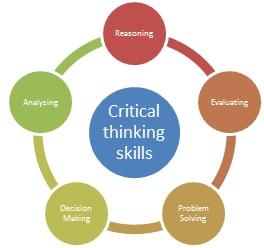Homeschooling can be a rewarding journey, but it often comes with its challenges. One of the most critical aspects of successful homeschooling is having access to the right homeschooling resources. These resources can range from curriculum guides and educational materials to support networks and online classes. By incorporating a variety of these tools, you can create a rich, engaging learning environment for your child, tailored to their unique needs and interests.
When starting out, it’s essential to identify what you and your child need to succeed. This often begins with selecting an appropriate curriculum, which can set the foundation for your homeschooling experience. There are numerous curricula available, each catering to different educational philosophies and learning styles. Whether you prefer a structured, classical approach or a more relaxed, child-led method, there’s something out there to fit your family.
In addition to curriculum choices, consider the importance of supplemental materials. These can include textbooks, workbooks, educational games, and even apps that make learning fun and interactive. Many parents also find value in joining homeschooling communities, both online and in-person, for support and shared resources. These communities can offer advice, moral support, and even co-op classes where children can learn alongside their peers.
For those new to homeschooling, understanding the legal requirements in your area is crucial. Each state or country has different laws and guidelines, so make sure to research thoroughly and comply with local regulations.
Ready to dive deeper into the world of homeschooling? Visit our website to learn more and get started today!
Choosing the Right Curriculum

Selecting the right curriculum is a pivotal part of your homeschooling journey. The choices can be overwhelming, but with a little research and understanding of your child’s learning style, you can find the perfect fit. When exploring homeschooling resources, consider the following factors:
- Learning Style: Every child is unique, with different strengths and preferences. Some children thrive with visual aids, while others prefer hands-on activities or auditory instruction. Identifying your child’s learning style can help you narrow down curriculum options.
- Educational Philosophy: Homeschooling allows you to choose an educational philosophy that aligns with your family’s values and beliefs. From classical education and Charlotte Mason methods to Montessori and unschooling, there are various approaches to explore.
- Flexibility: Some curricula offer rigid structures, while others provide more flexibility. If you need a program that adapts to your schedule or allows for spontaneous learning opportunities, consider this when making your choice.
- Grade Level and Subject Coverage: Ensure that the curriculum you choose covers all the necessary subjects and is appropriate for your child’s grade level. Some programs offer comprehensive packages, while others allow you to mix and match subjects to suit your needs.
- Budget: Homeschooling can be as affordable or expensive as you make it. There are free resources available online, as well as premium programs that come with a higher price tag. Determine your budget and find a curriculum that fits within it.
Remember, the curriculum you start with doesn’t have to be set in stone. As you and your child grow and learn together, you may find that adjustments are needed. The beauty of homeschooling is its adaptability, so don’t be afraid to make changes to better suit your family’s needs.
Essential Homeschooling Supplies
Having the right supplies can make a significant difference in the effectiveness and enjoyment of your homeschooling experience. Here is a list of essential homeschooling supplies that can help create a productive and engaging learning environment:
- Basic Stationery: Stock up on pens, pencils, erasers, sharpeners, highlighters, and rulers. These are the everyday tools your child will use for writing and drawing.
- Notebooks and Paper: Keep a variety of notebooks, lined paper, and graph paper on hand. These are crucial for note-taking, practicing math problems, and creative writing exercises.
- Art Supplies: Encourage creativity with a range of art materials such as colored pencils, markers, crayons, watercolors, and construction paper. Don’t forget glue, scissors, and other crafting essentials.
- Educational Posters and Charts: Visual aids can enhance learning and make it more engaging. Consider adding posters of the alphabet, multiplication tables, world maps, and scientific charts to your homeschooling space.
- Organizational Tools: Use folders, binders, and storage bins to keep materials organized. A well-organized space can help reduce distractions and make it easier to find what you need.
- Technology: A reliable computer or tablet with internet access is essential for researching information, accessing online curriculum, and using educational apps. Don’t forget a printer for worksheets and assignments.
- Library Card: Access to a local library can be invaluable. Libraries offer a wealth of resources, including books, educational DVDs, and free programs that can supplement your homeschooling curriculum.
- Comfortable Workspace: Ensure your child has a dedicated, comfortable workspace. A desk with a comfortable chair, good lighting, and minimal distractions can greatly enhance focus and productivity.
These supplies lay the foundation for a well-rounded and enjoyable homeschooling experience. While it’s tempting to buy everything at once, start with the basics and gradually add more specialized supplies as needed. This approach allows you to tailor your purchases to your child’s evolving interests and educational needs.
Online Learning Platforms

In the digital age, online learning platforms have become invaluable resources for homeschooling families. These platforms offer a wealth of educational materials, interactive lessons, and specialized courses that cater to various learning styles and subjects. Here are some top online learning platforms to consider:
- Khan Academy: Known for its comprehensive and free educational content, Khan Academy offers lessons in math, science, history, and more. The platform includes practice exercises, instructional videos, and a personalized learning dashboard.
- Coursera: Coursera partners with universities and organizations worldwide to offer online courses in a wide range of subjects. This platform is especially useful for older students looking to delve deeper into specific areas of interest or even earn certificates.
- ABCmouse: Ideal for younger children, ABCmouse provides a full online curriculum for preschool through 2nd grade. The platform features engaging activities, games, and interactive lessons that make learning fun.
- edX: Similar to Coursera, edX offers courses from top universities and institutions around the globe. Subjects range from computer science and engineering to literature and ethics, making it a great resource for advanced learners.
- Time4Learning: This platform provides a complete curriculum for PreK-12th grade. Time4Learning includes interactive lessons, printable worksheets, and detailed reporting for tracking progress.
- Duolingo: For those looking to learn a new language, Duolingo offers free, gamified language lessons. The platform covers many languages and is suitable for all ages.
- Prodigy: Prodigy is an engaging math platform designed for students in grades 1-8. It combines curriculum-aligned math practice with a fantasy-based game to keep students motivated.
- Outschool: Outschool offers live, online classes for kids aged 3-18. With a wide variety of subjects and interests covered, from academic courses to hobbies and life skills, this platform is highly customizable to individual learning needs.
These online learning platforms can significantly enhance your homeschooling curriculum by providing diverse and interactive educational experiences. Whether you’re seeking in-depth courses for advanced learners or engaging activities for younger children, the right platform can cater to your family’s unique educational needs.
Community and Support Groups

One of the most valuable homeschooling resources you can tap into is the support and camaraderie of community and support groups. These groups provide not only emotional and practical support but also opportunities for socialization, co-learning, and shared experiences. Here’s how you can benefit from joining these groups:
- Emotional Support: Homeschooling can sometimes feel isolating, especially for new homeschooling parents. Connecting with other homeschooling families through support groups can offer a sense of community and shared understanding, helping you navigate the challenges and celebrate the successes.
- Resource Sharing: Support groups are excellent places to exchange resources such as curriculum recommendations, lesson plans, and educational materials. Many groups also organize book swaps, co-op classes, and group purchases to reduce costs.
- Socialization Opportunities: Social interaction is crucial for children’s development. By participating in community groups, your children can build friendships, develop social skills, and engage in group activities such as field trips, sports, and arts and crafts.
- Workshops and Events: Many support groups organize educational workshops, seminars, and guest speaker events that can enrich your homeschooling experience. These events often cover a wide range of topics, from teaching strategies to specific subject matter expertise.
- Mentorship and Guidance: Experienced homeschooling parents in these groups can offer invaluable advice and mentorship. Whether you’re dealing with a specific challenge or seeking general guidance, having access to seasoned homeschoolers can be a tremendous asset.
- Co-op Learning: Some support groups form co-ops where parents share teaching responsibilities. This collaborative approach allows children to benefit from different teaching styles and expertise, as well as access to subjects that might be challenging to teach at home.
Joining a homeschooling community or support group can dramatically enhance your homeschooling journey. It provides a network of like-minded individuals who can offer advice, resources, and friendship, making the experience more enriching and enjoyable for both you and your children.
Time Management for Homeschooling

Effective time management is crucial for the success of any homeschooling program. Balancing educational demands, household responsibilities, and personal time can be challenging, but with the right strategies, you can create a harmonious and productive environment. Here are some tips to help you manage your time effectively:
- Create a Schedule: Start by developing a daily and weekly schedule that outlines your homeschooling hours, breaks, and extracurricular activities. A consistent routine helps children know what to expect and keeps everyone on track.
- Set Priorities: Identify the most important tasks for each day and focus on completing those first. Prioritizing helps you tackle essential subjects and activities without feeling overwhelmed.
- Use a Planner: A physical or digital planner can be a lifesaver for organizing your day. Schedule lessons, activities, and even personal time. Review your planner regularly to adjust plans as needed.
- Break Tasks into Smaller Steps: Large tasks can be daunting, so break them into smaller, manageable steps. This approach not only makes tasks less intimidating but also provides a sense of accomplishment as you complete each step.
- Incorporate Flexibility: While having a schedule is important, it’s equally crucial to remain flexible. Unexpected events or challenges may arise, and being adaptable can help you manage these situations without stress.
- Delegate Responsibilities: Involve your children in age-appropriate household chores and responsibilities. This not only lightens your load but also teaches them valuable life skills and the importance of contributing to the family.
- Set Boundaries: Establish clear boundaries between homeschooling time and personal time. This distinction helps prevent burnout and ensures that you and your children have time to relax and recharge.
By implementing these time management strategies, you can create a balanced and effective homeschooling environment. Remember, the goal is to foster a love of learning while maintaining a healthy and happy home life.
Visit our website to learn more and get started today! Click here.
Subscribe to our newsletter to get information delivered to your inbox on homesteading, growing food, food preparation, travel, fishing, and more.











